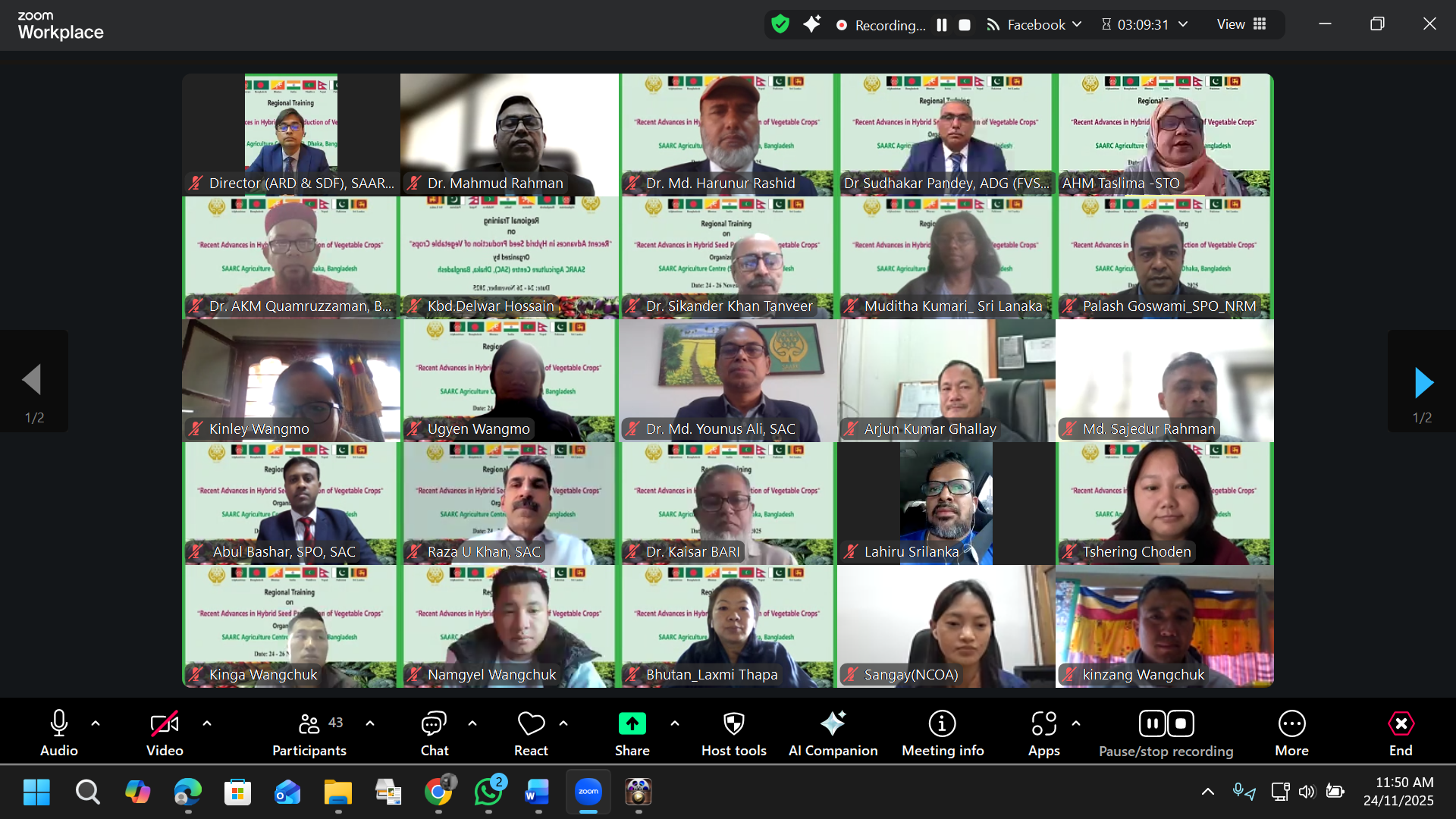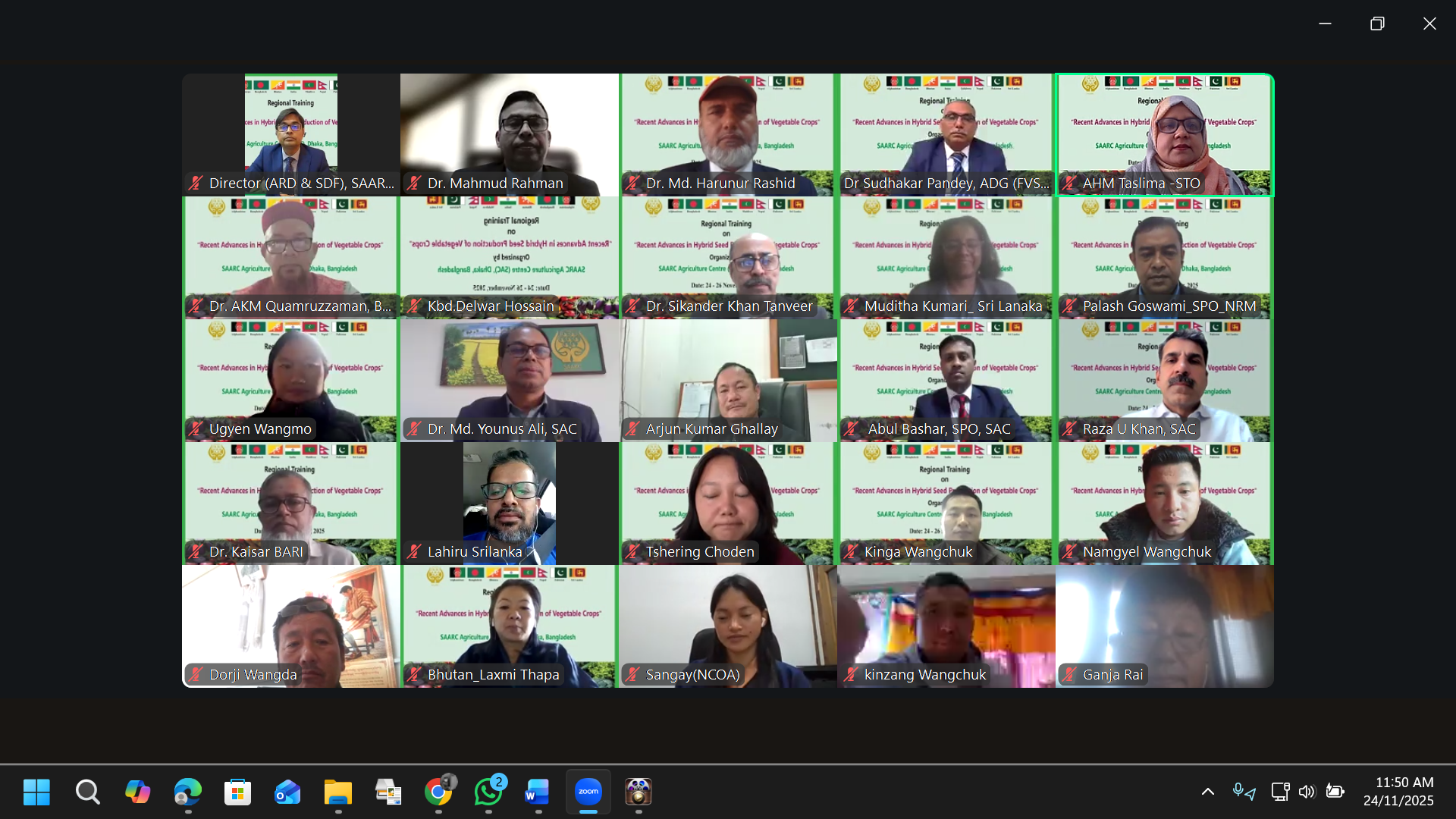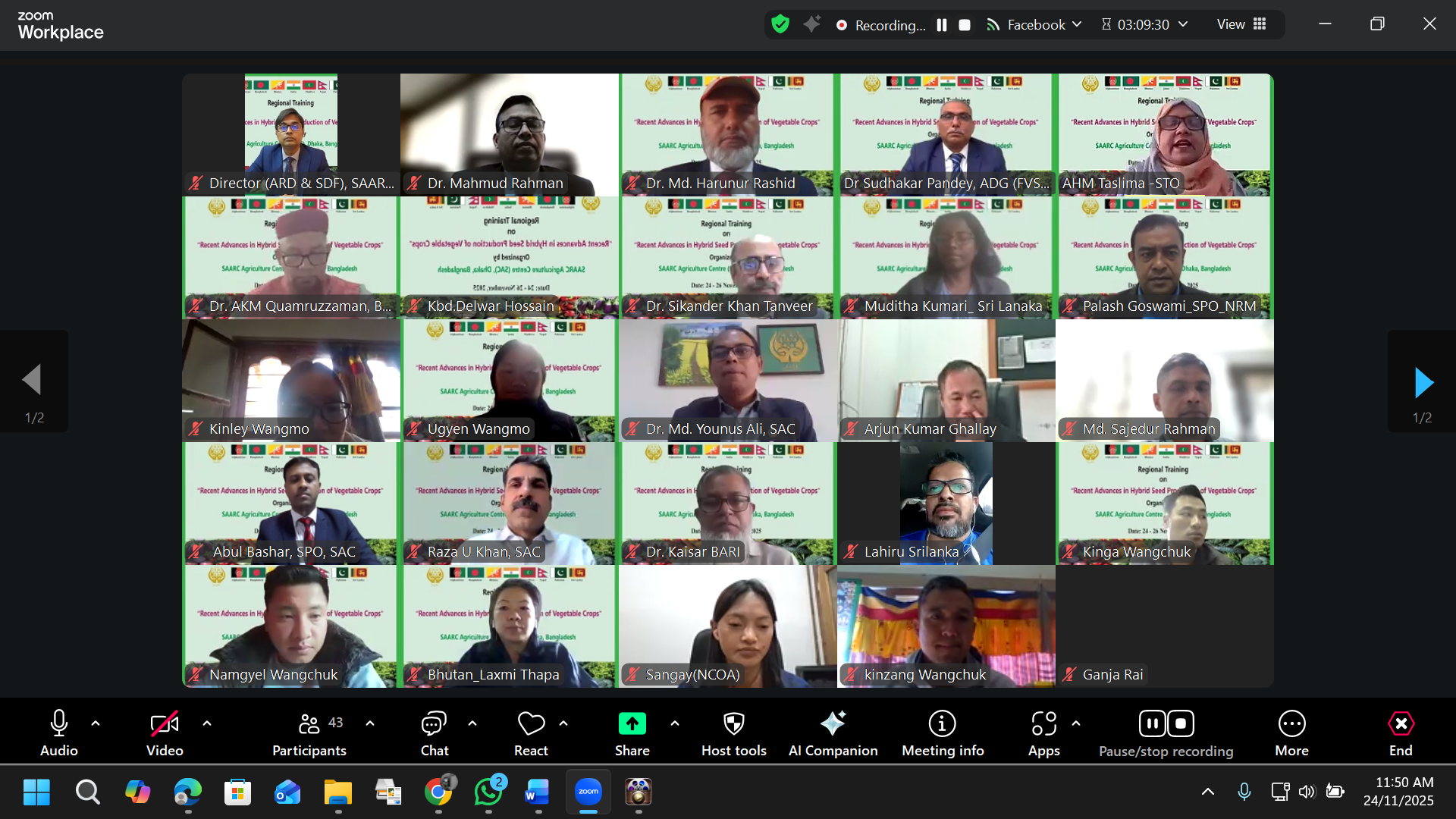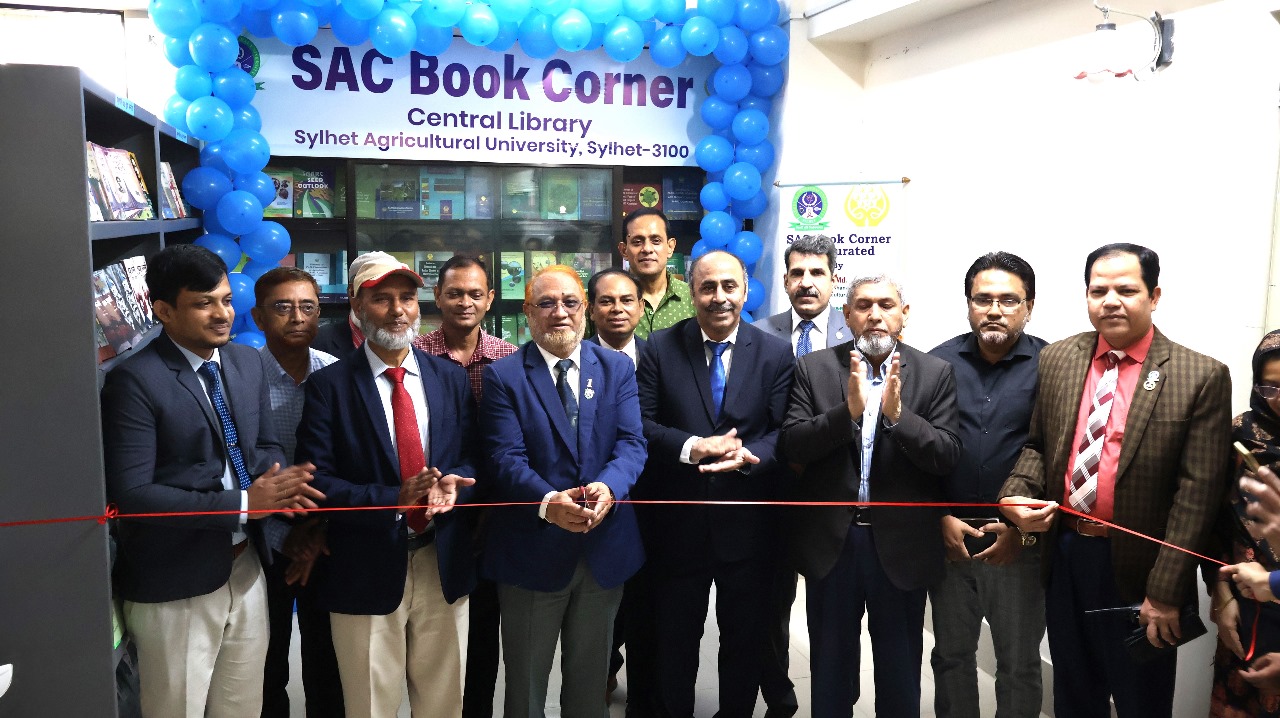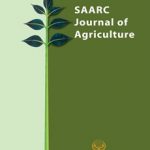A three-day virtual training titled “Recent Advances in Hybrid Seed Production of Vegetable Crops in SAARC Member States”, organized by the SAARC Agriculture Centre (SAC) was inaugurated on Monday (24 November 2025). The purpose of this training is to familiarize the participants about the latest techniques which are being used for the hybrid seed production of vegetable crops. The scientists of different SAARC member states are participating in this training program.
The program brought together regional experts will also discuss new technologies, challenges and opportunities for collaboration in hybrid vegetable crops seed production.
In his welcome remarks, Dr. Md. Harunur Rashid, Director of SAC, said that hybrid seed technology is vital for ensuring food and nutrition security across South Asia. He emphasized the importance of strengthening research capacity, improving seed quality and adopting climate-resilient innovations to boost regional productivity. Dr. Rashid noted that stronger collaboration, can increase knowledge exchange and enhance capacity building will be key to advancing high-quality, climate-resilient hybrid vegetable seed production across all SAARC member states.
Introducing the objectives of the training and sessions, Dr. Sikander Khan Tanveer, Senior Program Specialist (Crops), SAC, noted that the training covers major technical areas including vegetable hybridization techniques of different vegetables crops processing technique and marketing that can significantly improve seed production efficiency in SAARC member states.
Delivering the keynote address, Dr. Sudhakar Pandey, Additional Director General of ICAR, India, highlighted recent advancements in hybrid seed production of vegetables. He stressed that hybrid seeds not only enhance yield and quality but also offer better tolerance to pests, diseases and climatic stresses, making them vital for future agricultural growth. He also emphasized on their regional cooperation for boosting the vegetable crops in the region.
As Special Guest, Tanvir Ahmad Torophder, Director (ARD & SDF), SAARC Secretariat, said the training is timely as all SAARC countries are prioritizing vegetable production to improve nutrition. He added that shared knowledge, country presentations and regional cooperation can accelerate progress in hybrid seed development and commercialization in the region.
Speaking as the Chief Guest, Dr. Md. Mahmudur Rahman, Additional Secretary (PPC), Ministry of Agriculture, Bangladesh, said hybrid vegetable seeds are one of the strongest tools for improving yield, quality and farmers’ income. He noted that despite growing research efforts, challenges remain including limited quality seed availability, climate stress and the need for trained manpower.
Participants also discussed the region’s dependence on imported vegetable hybrid seed, weak research-extension linkages and gaps in seed certification and quarantine systems. Experts called for joint research, germplasm exchange, public–private partnerships and harmonized seed standards to strengthen regional seed security.










